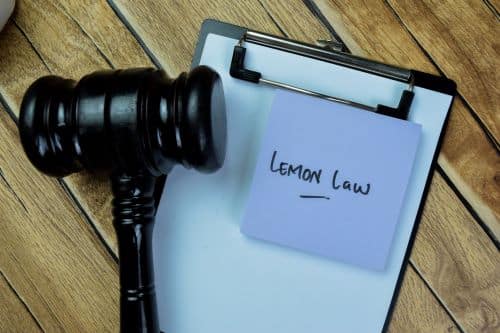How Lemon Laws Came About
Norman Taylor
April 27, 2025

When consumers buy a new vehicle, they expect it to work correctly. Unfortunately, this hasn’t always been the case, with some manufacturers selling defective cars with no way for buyers to seek help. This led to the creation of lemon laws, which were designed to protect consumers and offer legal remedies for faulty products.
Learn more about the lemon laws’ history, origins, and how they’ve evolved over the years below.
Key Takeaways:
- Lemon laws were created to protect consumers from defective vehicles and products.
- Important milestones include Connecticut’s first state lemon law, California’s Song-Beverly Act, and the federal Magnuson-Moss Warranty Act.
- California’s lemon law no longer applies to used vehicles after an October 2024 Supreme Court ruling.
Why Is It Called Lemon Law?
The word “lemon” has been around for a while. The British originally used it to describe both the fruit and something low-quality or disappointing. By the early 1900s, Americans picked it up to describe junk products, and by the 1960s, it was widely used to refer to defective cars that didn’t work as promised.
So, when people started buying cars that broke down too often or had serious issues, the term “lemon” just made sense. It caught on quickly, eventually inspiring laws designed to protect consumers from ending up with a sour deal.
How Do Lemon Laws Protect Consumers?
Lemon laws protect consumers from defective products by providing compensation options. Depending on the state, consumers may be entitled to a buyback, replacement, or cash settlement from the manufacturer.
When Was the Lemon Law Passed?
The First State Lemon Law: Connecticut
Connecticut was the first U.S. state to pass a lemon law. It all started when a resident bought a $7,000 car that turned out to be a lemon. The warranty had loopholes that let the seller off the hook, and the buyer was stuck with a bad deal. That sparked Representative John J. Woodcock III to introduce the law, which set the stage for lemon laws across the country.
After Connecticut, every state eventually created its own lemon law to give consumers legal options when they end up with defective vehicles under warranty.
1970: Song-Beverly Consumer Warranty Act
Before this law, consumer protection was mainly handled through the Uniform Commercial Code (UCC), which was really made for businesses, not regular people buying products. California saw the problem and created the Song-Beverly Consumer Warranty Act to offer stronger protections for buyers.
This law limited the number of chances a manufacturer gets to fix a defective product. If the issue isn’t resolved after a “reasonable” number of repairs, the manufacturer has to either replace the item or give a refund — a standard still used today.
1975: Federal Lemon Law
In 1975, the federal government stepped in with the Magnuson-Moss Warranty Act, often called the federal lemon law. It was designed to make warranties easier to understand and enforce. While lemon laws are mostly state-run, this act gave them a strong federal foundation and made sure consumers everywhere had backup when dealing with defective products.
How Do I Know If My Car Is a Lemon?
Your car must meet certain criteria to qualify as a lemon under lemon laws. While rules may vary by state, the defects should significantly affect the car’s use, value, or safety.
Minor issues, like problems with the stereo or air conditioning, likely won’t count. But major problems with essential parts, like the brakes, steering, or transmission, could make your car a lemon. For example, in California, you could be eligible for a refund or replacement if:
- You bought the vehicle from an authorized dealer.
- The car has a defect that impacts its use, value, or safety, and it’s covered by the warranty (either the original or extended warranty).
- The manufacturer was given a reasonable chance to fix the problem.
In October 2024, the California Supreme Court ruled that lemon law protections no longer apply to used cars in claims against manufacturers. Even if your used vehicle has warranty coverage left and has had several repairs, you won’t be eligible for a refund or replacement under the Lemon Law.
Why Should I Hire a Lemon Lawyer?
Consulting an experienced attorney is crucial if you think you have a lemon law claim.
Lemon law cases can be complex, and having a knowledgeable lawyer improves your chances of success. Lemon law specialists, like the attorneys at Norman Taylor & Associates, offer expert guidance and support to help you navigate the legal process.
Think You Might Have a Lemon? Contact Our California Firm
Lemon laws have come a long way since their inception and have played a crucial role in protecting people from faulty vehicles. As a consumer, knowing your rights and the available solutions under lemon laws is vital.
If you think you might have a lemon, don’t hesitate to seek legal help from Norman Taylor & Associates. Our skilled lemon law attorneys will assist you in pursuing your claim so you receive the compensation and resolution you deserve. Contact us today for a FREE consultation.
Schedule my consultation✓ Content checked by the lemon law attorneys at Norman Taylor & Associates

